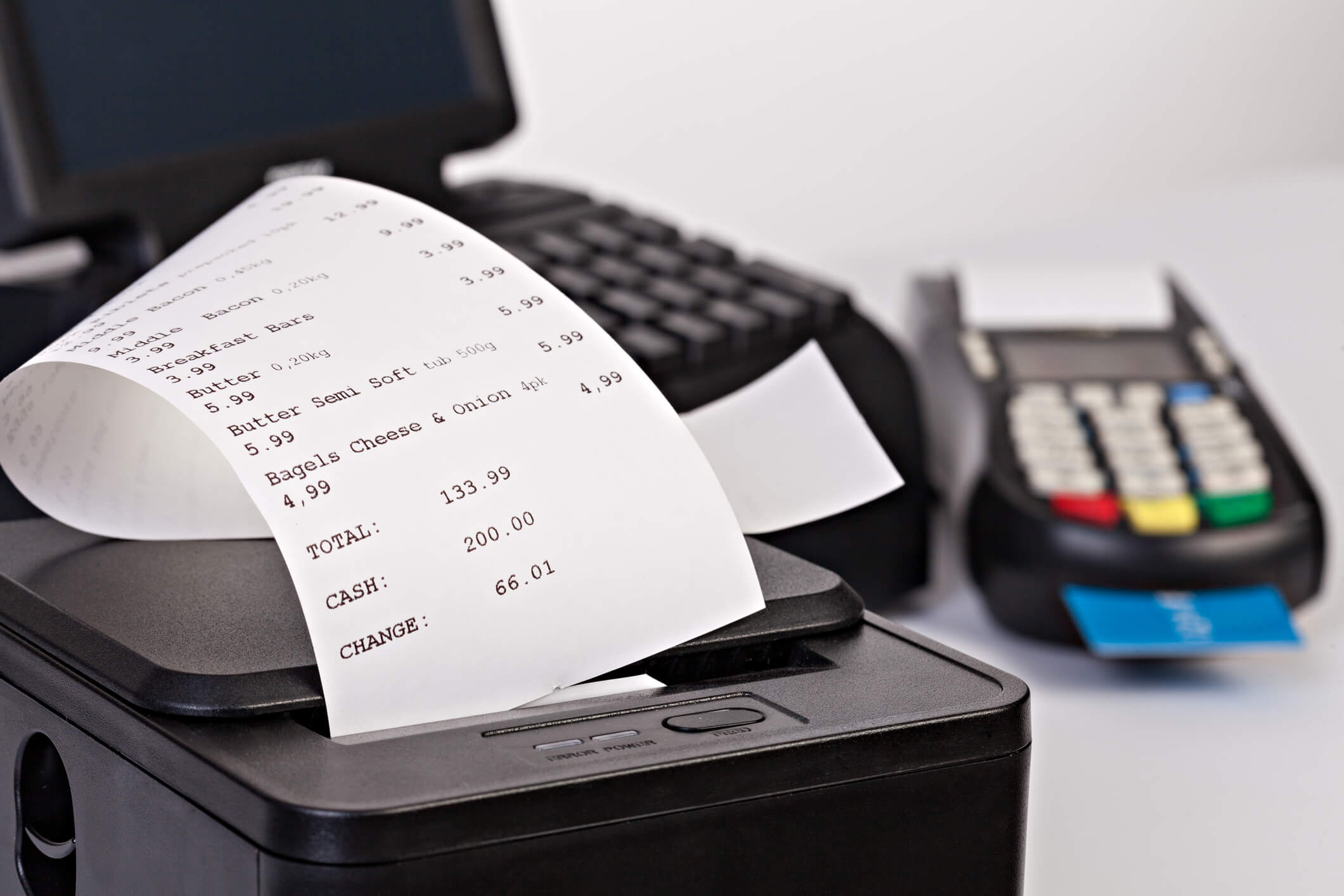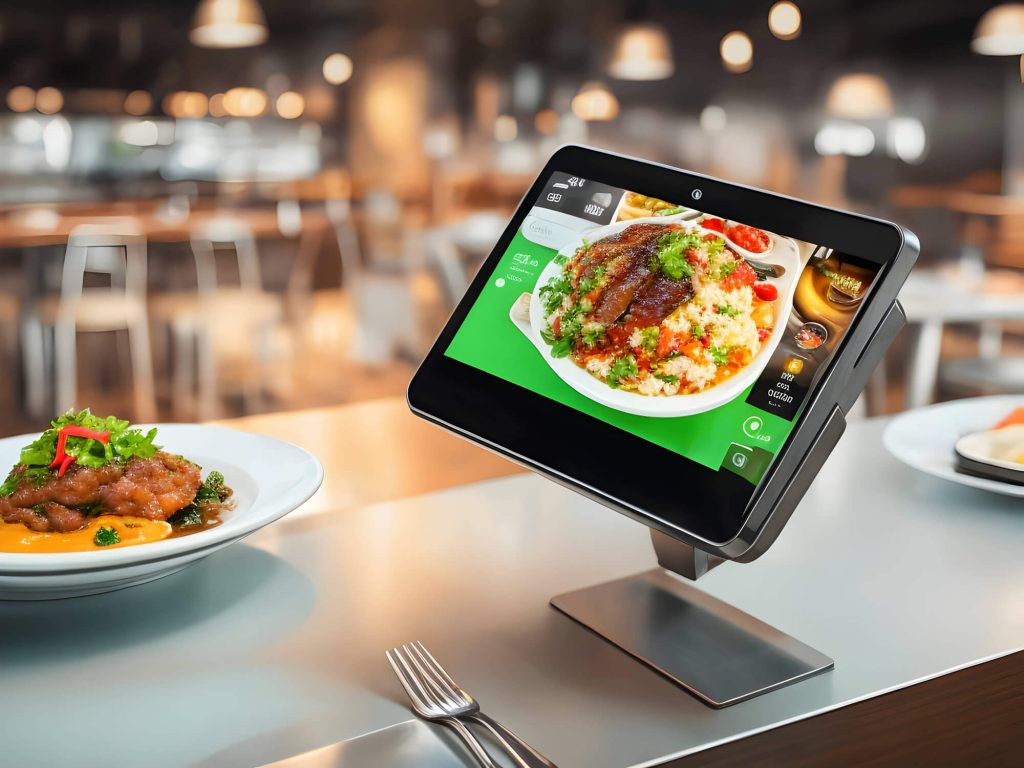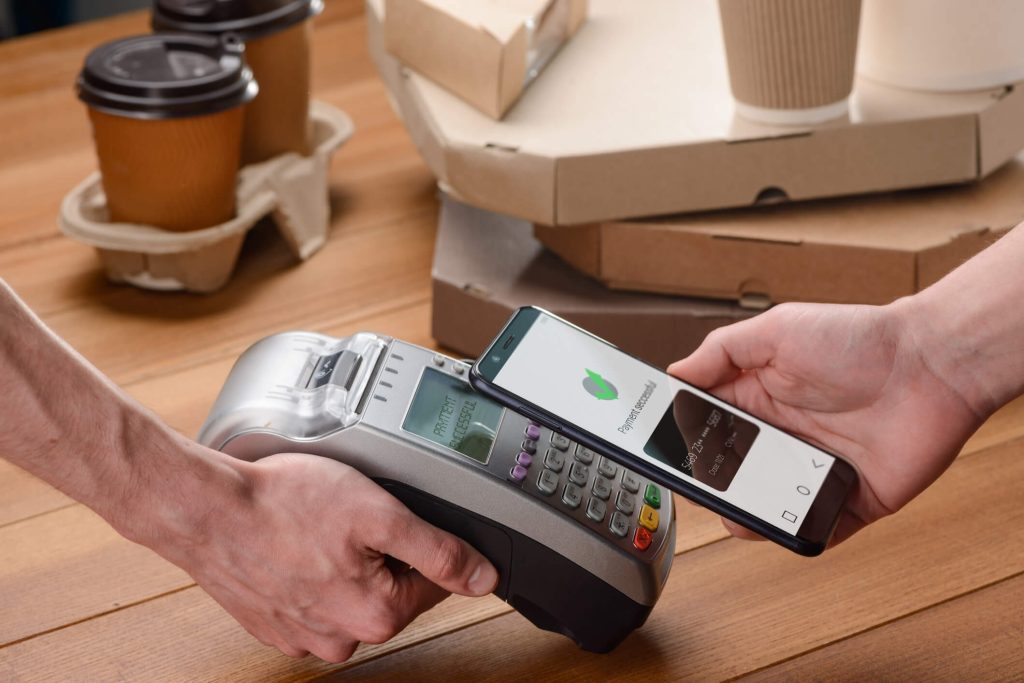
By alphacardprocess May 7, 2024
In the fast-evolving business landscape, the efficiency of transactions is paramount. A Point of Sale (POS) system not only facilitates this but also streamlines inventory management, sales reporting, and customer relations. Selecting the right POS system can significantly impact your business operations, affecting everything from customer satisfaction to your bottom line. This comprehensive guide will help you navigate the myriad options available, ensuring you choose the best POS system tailored to your business needs.
Understanding the Importance of a POS System for Your Business
Before diving into the process of choosing a POS system, it is essential to understand the importance of having one for your business. A POS system serves as the central hub for all your sales and inventory management activities. It allows you to process transactions, track inventory, manage customer data, and generate reports for better decision-making. By automating these tasks, a POS system saves time and reduces human errors, leading to improved efficiency and productivity. Additionally, a POS system provides valuable insights into your business performance, enabling you to identify trends, optimize inventory levels, and tailor your marketing strategies to meet customer demands.
The Benefits of Implementing a POS System
Implementing a POS system offers numerous benefits for businesses of all sizes. Let’s explore some of the key advantages:
Streamlined Transactions
A POS system simplifies the checkout process, making transactions quicker and more efficient. Unlike traditional cash registers, POS systems can process payments swiftly and support various payment methods, including credit cards, debit cards, mobile payments, and e-wallets. This versatility improves customer satisfaction by offering them convenience and reducing wait times.
Enhanced Inventory Management
One of the most significant benefits of a POS system is its ability to manage inventory in real-time. As sales are processed, the system automatically updates stock levels, providing accurate and up-to-date inventory data. This feature helps businesses avoid overstocking or understocking situations, ensuring optimal inventory levels are maintained. It also aids in forecasting demand, planning purchases, and minimizing wastage, thereby enhancing overall operational efficiency.
Improved Sales Tracking and Reporting
A POS system offers robust reporting features that provide valuable insights into business performance. Owners and managers can track sales, profits, and customer preferences through detailed reports generated by the system. This data is crucial for making informed business decisions, identifying sales trends, and understanding which products are performing well. Armed with this information, businesses can tailor their strategies to maximize profits.
Better Customer Management
Modern POS systems often include customer relationship management (CRM) capabilities. These systems can record customer purchase histories and preferences, enabling businesses to tailor marketing efforts and promotions to individual needs and preferences. Such personalized interaction can increase customer loyalty and repeat business, providing a competitive edge.
Increased Accuracy
With a POS system, the likelihood of human errors in pricing, accounting, and inventory is significantly reduced. The system automates calculations and maintains consistency across all transactions, ensuring accuracy and reliability in business operations. This precision is particularly crucial during busy periods when the risk of manual errors is higher.
Employee Management
POS systems can also function as a tool for managing employees. They can track employee hours, calculate commissions, and monitor performance. This feature simplifies payroll processes and helps in managing staff more effectively by providing insights into sales effectiveness and areas needing improvement.
Security Enhancements
Security is paramount in any business transaction. POS systems enhance security by controlling access to transactional data and sensitive information. They can be set up to require user authentication, which helps prevent unauthorized access and reduces the risk of theft. Additionally, modern POS systems support encryption and secure data handling to protect against data breaches.
Simplified Tax Compliance
Calculating and recording taxes can be complex and time-consuming. A POS system can automatically calculate sales tax based on the current rates and geographical guidelines. This automation not only saves time but also ensures compliance with tax regulations, reducing the likelihood of costly errors during tax season.
Latest Statistics on POS System Adoption in Businesses
To understand the significance of POS systems in today’s business landscape, let’s take a look at some recent statistics:
- According to a report by Grand View Research, the global POS terminal market size was valued at USD 62.34 billion in 2020 and is expected to grow at a compound annual growth rate (CAGR) of 7.9% from 2021 to 2028.
- A survey conducted by Square found that 56% of small businesses in the United States use a POS system, with 27% planning to adopt one in the near future.
- The National Retail Federation (NRF) reports that 67% of retailers consider upgrading their POS systems a top priority, highlighting the growing importance of modernizing retail operations.
- In the hospitality industry, a study by Hospitality Technology revealed that 73% of restaurants and hotels believe that a POS system is essential for their business success.
These statistics demonstrate the widespread adoption of POS systems across various industries and the recognition of their value in improving business operations.
Factors to Consider When Choosing a POS System
Now that we understand the importance of a POS system, let’s delve into the factors you should consider when selecting the right one for your business.
Identifying Your Business Needs and Goals
The first step in choosing a POS system is to identify your specific business needs and goals. Consider the following questions:
- What type of business do you operate? Retail, restaurant, or hospitality?
- What are your primary objectives in implementing a POS system? Streamlining operations, improving customer experience, or increasing sales?
- What features and functionalities are essential for your business? Inventory management, employee management, or integration with other tools?
- Do you have multiple locations that require centralized management?
- What is your expected growth rate, and will the POS system be able to scale with your business?
By answering these questions, you can narrow down your options and focus on POS systems that align with your specific requirements.
Assessing Your Budget and Cost Considerations
Another crucial factor to consider is your budget and cost considerations. POS systems can vary significantly in terms of pricing, depending on factors such as hardware requirements, software features, and ongoing subscription fees. It is essential to evaluate the total cost of ownership, including upfront costs, installation fees, training expenses, and any additional charges for upgrades or technical support. Consider whether a one-time purchase or a subscription-based model would be more suitable for your budget. Additionally, factor in any potential return on investment (ROI) from improved efficiency, increased sales, or reduced operational costs.
Evaluating Hardware and Software Requirements
When choosing a POS system, it is important to evaluate the hardware and software requirements. Consider the following:
- Hardware: Determine whether the POS system requires specific hardware components such as cash registers, barcode scanners, receipt printers, or touchscreen monitors. Assess whether your existing hardware can be integrated with the POS system or if you need to invest in new equipment.
- Software: Evaluate the software features and functionalities offered by different POS systems. Look for features such as inventory management, sales reporting, employee management, customer relationship management, and integration capabilities. Ensure that the software is user-friendly and intuitive, as it will be used by your employees on a daily basis.
- Compatibility: Check whether the POS system is compatible with your existing operating system (e.g., Windows, macOS, or Linux) and whether it can integrate with other business software you use, such as accounting or e-commerce platforms.
Analyzing Integration and Scalability Options
Integration and scalability are crucial considerations, especially if you have plans for future growth or if you already use other business tools. Look for a POS system that offers seamless integration with other software applications, such as accounting, inventory management, or e-commerce platforms. This will ensure that data flows smoothly between systems, eliminating the need for manual data entry and reducing the risk of errors. Additionally, consider whether the POS system can scale with your business. Will it be able to handle increased transaction volumes, support multiple locations, or accommodate new features as your business expands? Choosing a scalable POS system will save you the hassle of switching to a new system in the future.
Exploring Different Types of POS Systems
Now that we have covered the factors to consider when choosing a POS system, let’s explore the different types of POS systems available in the market.
Traditional On-Premise POS Systems
Traditional on-premise POS systems are installed locally on your business premises and require dedicated hardware and software. These systems offer robust functionality and can be customized to fit your specific business needs. However, they often come with higher upfront costs, as you need to purchase the hardware and software licenses. Additionally, on-premise systems may require regular maintenance and updates, which can add to the overall cost. Despite these considerations, on-premise systems provide full control over your data and can be a good option for businesses that prioritize security and customization.
Cloud-Based POS Systems

Cloud-based POS systems, also known as Software-as-a-Service (SaaS) solutions, are hosted on remote servers and accessed through the internet. These systems offer several advantages, including lower upfront costs, automatic software updates, and the ability to access data from anywhere with an internet connection. Cloud-based POS systems are typically subscription-based, with monthly or annual fees. They are easy to set up and require minimal hardware, as most of the processing is done on the cloud servers. However, it is important to ensure that you have a reliable internet connection to avoid disruptions in service.
Mobile POS Systems

Mobile POS systems are designed to run on smartphones or tablets, allowing businesses to process transactions on the go. These systems are particularly popular in industries such as food trucks, pop-up shops, or events where mobility is essential. Mobile POS systems offer flexibility and convenience, as they eliminate the need for dedicated hardware and can be easily set up using off-the-shelf devices. They often come with features such as inventory management, customer data capture, and integration with payment processors. However, it is important to consider factors such as battery life, device compatibility, and security when opting for a mobile POS system.
Hybrid POS Systems
Hybrid POS systems combine the benefits of both on-premise and cloud-based solutions. These systems allow businesses to have a local server for storing data and processing transactions, while also leveraging the advantages of cloud-based functionality. Hybrid POS systems offer the flexibility of accessing data from anywhere while ensuring that critical operations can continue even in the absence of an internet connection. They are suitable for businesses that require a high level of customization and control over their data, while also benefiting from cloud-based features such as automatic updates and remote access.
Comparing Top POS System Providers in the Market
Once you have identified the type of POS system that best suits your business needs, it is time to compare different providers in the market. Consider the following factors when evaluating different POS system providers:
Features and Functionality Comparison
Compare the features and functionalities offered by different POS systems. Look for features such as inventory management, sales reporting, employee management, customer relationship management, and integration capabilities. Assess whether the system offers customization options to tailor it to your specific business needs. Additionally, consider the user interface and ease of use, as this will impact the adoption and efficiency of the system.
Pricing and Subscription Models
Evaluate the pricing and subscription models offered by different POS system providers. Consider factors such as upfront costs, installation fees, ongoing subscription fees, and any additional charges for upgrades or technical support. Compare the pricing structure to your budget and expected ROI. Additionally, consider whether the provider offers different pricing tiers or packages to cater to businesses of different sizes.
Customer Support and Training
Customer support and training are crucial aspects to consider when choosing a POS system provider. Look for providers that offer 24/7 customer support, preferably through multiple channels such as phone, email, or live chat. Assess the provider’s reputation for responsiveness and problem resolution. Additionally, inquire about the availability of training resources, such as user manuals, video tutorials, or on-site training sessions, to ensure that your employees can quickly adapt to the new system.
User Reviews and Ratings
User reviews and ratings can provide valuable insights into the performance and reliability of a POS system provider. Look for reviews on reputable platforms such as Capterra, G2, or Trustpilot. Pay attention to both positive and negative reviews to get a balanced perspective. Additionally, consider reaching out to businesses in your industry that are already using the POS system you are considering and ask for their feedback and recommendations.
Frequently Asked Questions
To address common concerns and provide further clarity, let’s explore some frequently asked questions about POS systems:
Q.1: What is a POS system, and how does it work?
Answer: A POS system, or point-of-sale system, is a combination of hardware and software that allows businesses to process transactions, track sales, manage inventory, and generate reports. It typically includes components such as a cash register, barcode scanner, receipt printer, and software for managing sales and inventory. When a customer makes a purchase, the transaction is recorded in the POS system, updating inventory levels and generating a receipt for the customer.
Q.2: Can a POS system be customized to fit my business needs?
Answer: Yes, many POS systems offer customization options to fit your specific business needs. You can often tailor the system to include features and functionalities that are relevant to your industry or business model. However, it is important to consider the level of customization offered by different providers and assess whether it aligns with your requirements.
Q.3: Are there any security concerns with using a POS system?
Answer: Security is a critical consideration when using a POS system, as it involves handling sensitive customer data and processing financial transactions. Look for POS systems that comply with industry standards such as Payment Card Industry Data Security Standard (PCI DSS) and offer features such as encryption, tokenization, and secure payment gateways. Additionally, ensure that the provider offers regular software updates and patches to address any security vulnerabilities.
Q.5: Can a POS system integrate with other business software?
Answer: Many POS systems offer integration capabilities with other business software such as accounting, inventory management, or e-commerce platforms. This allows for seamless data flow between systems, eliminating the need for manual data entry and reducing the risk of errors. When evaluating different POS system providers, inquire about their integration options and assess whether they can integrate with the software applications you currently use or plan to use in the future.
Q.6: What is the average cost of a POS system?
Answer: The cost varies significantly depending on features, scalability, and whether it is cloud-based or locally installed. Prices can range from $50 to $100 per month for basic systems to over $300 per month for advanced features.
